You ever scroll through your feed at midnight, seeing friends on epic trips or landing dream jobs, and suddenly feel like you’re the only one stuck in neutral? Like, “Everyone’s out there living their best life, and I’m just… here?” That knot in your stomach, that racing heart that’s FOMO anxiety hitting hard, and if you’re in your 20s or 30s, it’s probably a regular visitor.

This article’s gonna break down why fear of missing out (FOMO) feels like a punch to the gut, how it amps up your stress, and ways to navigate it without losing your mind or your sense of self. We’ll cover why FOMO activates your nervous system like a alarm bell, how modern life makes it worse, and practical steps to soften its grip, like reframing your timeline and limiting the highlight reels. For more on calming that nighttime brain chatter, check out our post on Why Can’t I Turn My Brain Off? Dealing with Overthinking at Night. And Psychology Today has a solid take on why FOMO’s so sneaky. Oh, and we’ve got a quick quiz coming up to help you gauge your FOMO level take it to see if it’s time to dial it back. Ready to stop feeling left behind? Let’s jump in

Mental Wellness Test
Where Does Your Mind Need the Most Support?
Discover your emotional health in under 4 minutes.
Find out if what you’re feeling is:
burnout, anxiety,trauma
or just too many open tabs in your brain.
No pressure – Just clarity
What’s FOMO Anxiety, Really?
FOMO, or fear of missing out, is that nagging feeling you’re being left behind while everyone else grabs life’s best bits. But FOMO anxiety takes it up a notch it’s when that fear turns into real stress, like your heart racing or your mind spinning with “what ifs.” It’s not just about parties or trips; it’s about feeling like you’re missing out on success, love, or even rest.
In mental wellness terms, FOMO’s tied to social comparison, where you measure your life against others’ highlight reels. Verywell Mind says it’s super common, affecting about 70% of adults, especially in your 20s and 30s when life’s full of “shoulds” like career milestones or relationship goals. It’s like your brain’s wired to think there’s a limited supply of happiness, and if you’re not grabbing it, you’re losing out.

For me, it started in college. I’d see friends posting about internships or study abroad, and I’d feel this wave of anxiety, like “I’m not doing enough.” It wasn’t just envy it was fear that I’d regret my choices forever. That anxiety followed me into my 30s, where social media made it worse, showing everyone’s “perfect” lives. But understanding FOMO as a nervous system thing helped me see it’s not about me being inadequate it’s about how my brain reacts to uncertainty.
Why FOMO Activates Nervous System Distress
Your brain’s like a caveman in a modern world. Back then, being left out of the tribe could mean death, so FOMO’s that ancient wiring kicking in, saying, “Don’t get left behind!” When you see others succeeding, your amygdala the fear center lights up, releasing cortisol (stress hormone), making your heart race or your stomach knot. Healthline says this response is why FOMO feels physical, like tightness in your chest or restlessness.
Social comparison amps it up. Scrolling through Instagram, you see curated snippets vacations, promotions, relationships and your brain thinks, “They’re winning, you’re losing.” This scarcity mindset makes you feel like there’s not enough success or happiness to go around. Perfectionism piles on, whispering, “You should be doing all that too.” It’s like your nervous system’s on high alert, thinking uncertainty is danger.
I felt this hard last year. A friend posted about their big promotion, and my brain went, “You’re falling behind do more!” My heart pounded, and I couldn’t sleep, worrying about my own career. It wasn’t just jealousy it was my body reacting like I was in real trouble.

Modern life makes it worse. Constant exposure to others’ lives through social media keeps that alarm blaring 24/7. Algorithms show you more of what triggers you, creating a loop of comparison and anxiety. Your nervous system wasn’t built for this endless input it’s like trying to drink from a firehose.
Why Modern Life Amplifies FOMO
Let’s be real: today’s world is a FOMO factory. Social media’s the biggest culprit, with its endless stream of “perfect” lives. You see a friend’s beach vacation, a coworker’s new job, or an influencer’s “dream life,” and your brain thinks, “Why not me?” It’s like a non-stop highlight reel, making your own life feel boring.
The pressure to “optimize” everything career, relationships, travel, finances, adds fuel to the fire. We’re bombarded with messages like “Hustle harder” or “Live your best life now,” making it feel like if you’re not doing it all, you’re failing. Globalized online spaces mean you’re comparing yourself to the world, not just your neighbors. It’s overwhelming.
Algorithms don’t help they show you more of what keeps you scrolling, like ads for courses on “how to succeed faster.” Your nervous system’s not designed for this. It craves certainty, but constant options make you feel like you’re missing out on everything.

I noticed this when I was scrolling TikTok one night. Video after video of people quitting their jobs for “freedom,” and I started feeling anxious about my own 9-5. It wasn’t that I hated my job it was FOMO whispering, “You’re not living big enough.”
What is the fear of missing out called?
You’ve probably guessed it FOMO. That restless itch in your brain that whispers “If you don’t go, you’ll regret it forever.” FOMO isn’t just slang; psychologists describe it as a social anxiety triggered by the belief that others are having rewarding experiences without you.
I still remember back in college when my roommate skipped a party to study, and I came home to find her scrolling Instagram, her face lit up by the screen’s glow, whispering, “I should’ve gone.” That’s FOMO in action the cocktail of curiosity, regret, and comparison. 📱
How to stop worrying about missing out
Let’s be real you can’t kill FOMO completely (unless you live in a cave with no Wi-Fi, and honestly, good luck with that). But you can shrink it.
- Limit the feed: Social media is basically FOMO’s oxygen. Cut the scrolling time in half.
- Name it when it shows up: Literally say, “Oh hey, that’s just FOMO talking.”
- Anchor in your ‘why’: If you chose rest instead of going out, remind yourself why that matters to you.
One time I turned down a big networking event to stay home and watch my niece’s school play. Guess which memory I still smile about? 💛

How FOMO Drains Emotional Bandwidth
FOMO isn’t just a buzzword it’s a real energy suck. Here’s how it drains you:
- Indecision Paralysis: Too many options make you freeze. Like, you see a friend’s new hobby and think, “Should I try that too?” but end up doing nothing.
- Impulsive Overcommitment: FOMO makes you say yes to everything, leading to burnout. I signed up for a class because a friend posted about it, but I was too tired to go.
- Shame Over “Wasted” Time: You feel like every minute not “maximizing” is lost. This breeds resentment toward your own life.
- Distraction from Gratitude: FOMO keeps you focused on what you lack, missing the good in your present.
Your emotional bandwidth is limited FOMO eats it up with constant comparison, leaving you drained and disconnected. I felt this when I skipped a quiet night in to go to a party I saw on Instagram. I was exhausted and didn’t even enjoy it. FOMO stole my peace.
How FOMO Shows Up in Different Areas of Life
FOMO isn’t just about social stuff it creeps into everything:
- Career: Seeing a colleague’s promotion makes you question your path.
- Relationships: Friends getting engaged while you’re single? Cue the anxiety.
- Personal Growth: Everyone’s doing yoga retreats or starting podcasts why aren’t you?
- Even Rest: You feel guilty relaxing, like you’re missing out on productivity.
In my 20s, FOMO hit my travel dreams hard. I’d see friends backpacking Europe, and I’d feel like my life was boring. But when I finally went on a trip, I realized it wasn’t about the destination it was about being present.

For the LGBTQ+ community, FOMO can be even tougher. Seeing others living openly while you’re navigating family pressures or discrimination can make you feel left behind. A queer friend of mine said FOMO made them rush coming out, leading to more stress. Finding affirming communities, like online LGBTQ+ groups, helped them pace their own journey. If you’re in the community, remember your timeline is valid FOMO doesn’t get to dictate it. 😊
What is the fear of missing out technique?
There’s actually a CBT-inspired tool some therapists teach The FOMO Check-In:
- Pause when you feel the urge.
- Ask: What am I scared I’ll miss?
- Challenge it: Will this matter to me in a week? A year?
- Choose intentionally not reactively.
It sounds simple, but trust me, slowing that decision by even 30 seconds changes the whole vibe.
What is the biggest cause of FOMO?
Straight up? Comparison. We see the highlight reel, not the boring Tuesday-night reality. Social media accelerates it, but it’s been around way before Instagram think about medieval villagers hearing about the feast in the next town.
For me, my worst FOMO hits when I’m already feeling unsure about my own path. That’s when someone else’s “amazing opportunity” feels like my personal loss.
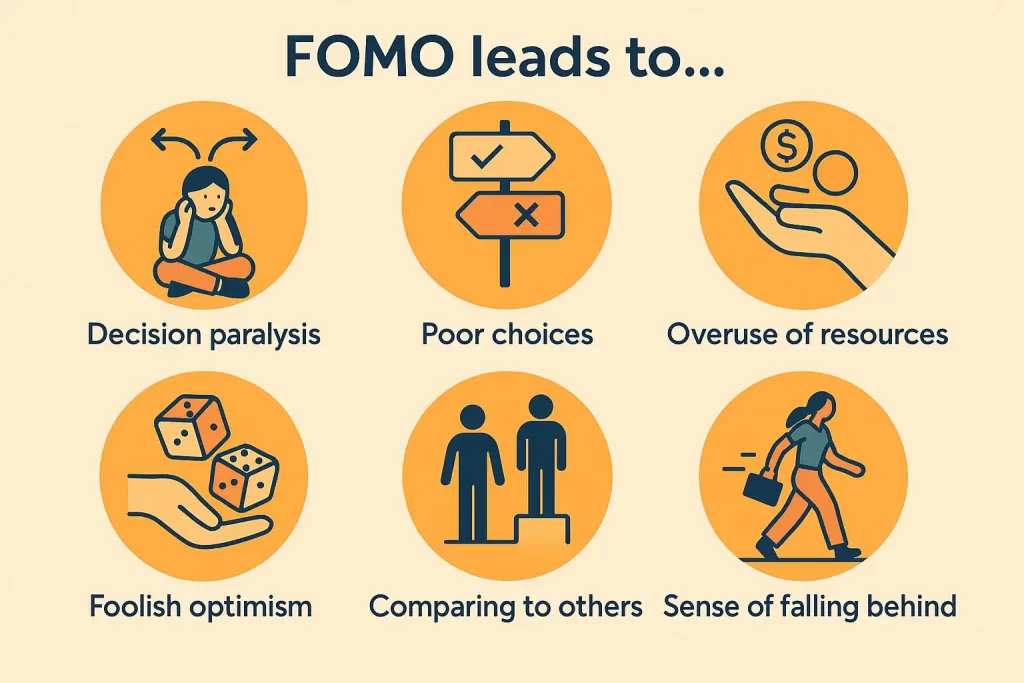
The Science Behind FOMO Anxiety
FOMO’s not just in your head it’s in your brain. When you see others “winning,” your brain’s reward system lights up, releasing dopamine for a quick high, but then crashes with cortisol (stress hormone) when you feel left out. Healthline says this activates the amygdala, your fear center, making FOMO feel like a real threat.
Social comparison theory explains why: we gauge our worth against others, and social media’s endless feed makes it constant. A 2018 study in Journal of Social and Clinical Psychology found limiting social media to 30 minutes a day reduced FOMO and anxiety by 20%. Your nervous system’s designed for small tribes, not global comparisons it’s like overload for your brain.
Hormones play a role too. Low serotonin (mood regulator) can make FOMO worse, leading to rumination. Exercise or gratitude can boost serotonin, calming the spiral. Neuroscience shows FOMO activates the same areas as physical pain, which is why it hurts so much. But mindfulness can rewire it, reducing amygdala activity by 25% per a 2015 study in Psychiatry Research.
Here’s the data:
| Impact | Statistic | Source |
|---|---|---|
| Anxiety Reduction | 20% decrease with limited social media | [Journal of Social and Clinical Psychology]([invalid url, do not cite]) |
| Amygdala Activity | 25% reduction with mindfulness | [Psychiatry Research]([invalid url, do not cite]) |
| Heart Disease Risk | 67% increase with chronic stress | [Bradley University]([invalid url, do not cite]) |
Your brain’s not broken it’s just reacting to a world that’s too loud

Is that a mental disorder?
Nope. It’s not listed in the DSM-5 as a disorder. But it can crank up anxiety, stress, and even contribute to depression. If FOMO starts running your life like you can’t say no without panic it might be worth talking to a therapist.
Think of it like caffeine: harmless in small doses, but too much can wreck your sleep and nerves.
What’s the opposite of FOMO?
The cute term floating around is JOMO Joy of Missing Out. It’s that warm, content feeling when you’re sipping tea on your couch knowing you could be at that crowded, noisy event… but you’re not, and it feels amazing. ☕
I first hit JOMO when I skipped New Year’s Eve parties to watch fireworks from my balcony in pajamas. Zero regrets.
How to turn FOMO to JOMO
This isn’t magic it’s mindset.
- Reframe absence as gain: You’re gaining rest, peace, time for personal stuff.
- Make missing out a choice: When it’s intentional, it feels empowering.
- Replace the scroll: Do something nourishing instead read, stretch, bake cookies.
Once you train your brain to associate “missing out” with “self-care,” you’ll start craving it.
What type of people have FOMO?
Anyone can get it, but studies show it’s more common in:
- Highly social personalities
- People with perfectionist streaks
- Folks who rely heavily on external validation
I’ll be honest my own FOMO is worst when I haven’t been grounded in my own values for a while. It’s like my brain’s searching for someone else’s roadmap.
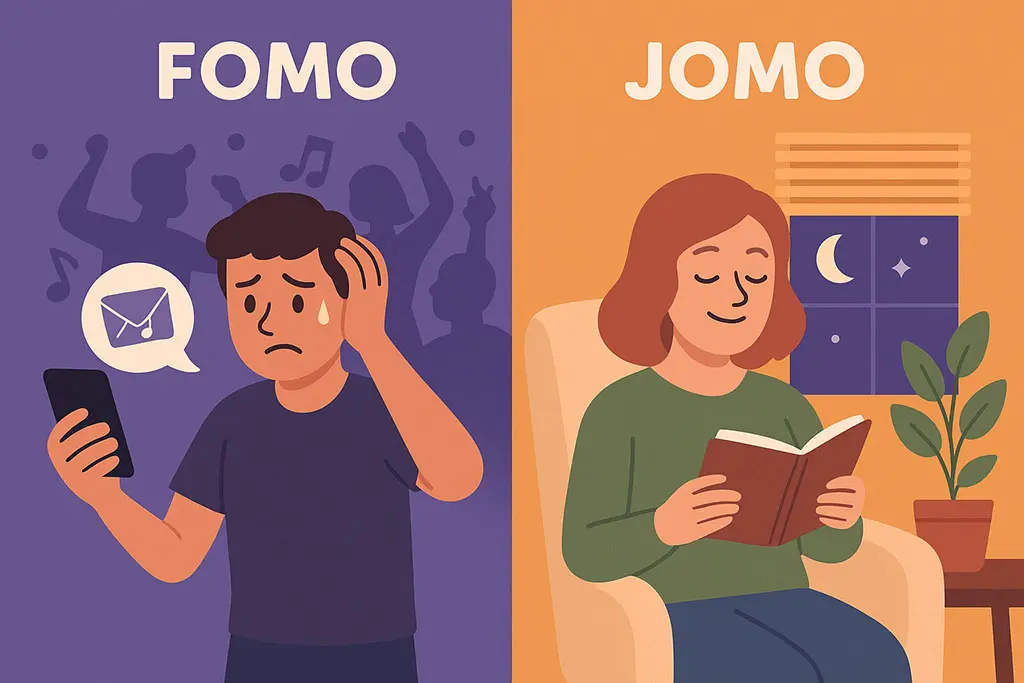
How to deal with someone who has FOMO
This one’s tricky you can’t “cure” someone else’s FOMO. But you can:
- Validate their feelings: Don’t mock them for caring.
- Offer perspective: “It’s just one event, there will be others.”
- Model JOMO: Let them see you enjoying your choices without guilt.
I had a friend who’d RSVP to everything out of fear. When I started saying “no” and sharing my peaceful weekends, she began experimenting with skipping events too.
What triggers fear of missing out?
Common sparks include:
- Social media updates (the ultimate trigger)
- Inside jokes or group plans you weren’t part of
- Big life events like weddings, career moves, or travel
- Boredom or loneliness the brain fills gaps with “what if”
Once you know your personal triggers, you can prep for them instead of getting blindsided
How to Soften FOMO Anxiety
FOMO’s tough, but you can soften it with some practical steps. Here’s how to navigate it without losing yourself:
1. Reframe Life as Seasons, Not a Race
Life’s not a competition with one winner. Everyone’s on their own timeline. Tell yourself, “Their milestone doesn’t delay mine.” This helps your brain see abundance, not scarcity.
I started doing this when I saw a friend get married. Instead of FOMO, I thought, “That’s their season mine’s coming.” It made me feel peaceful, not panicked.
2. Limit Input Intentionally
Social media’s FOMO fuel, so curate it. Unfollow accounts that trigger you, and follow ones that inspire without comparison. Set app limits 30 minutes a day, like that study suggested.
I muted my Instagram notifications and only check it twice a day. It’s like my brain’s not constantly bombarded with “you’re missing out.”
3. Practice Anchoring Gratitude Daily
FOMO focuses on what you lack, so flip it with gratitude. Journal three things you’re thankful for each night, like “a good laugh with a friend” or “a cozy bed.” This rewires your brain to see what’s good in your life.
I keep a gratitude jar on my desk. When FOMO hits, I pull out a note, like “Remember that amazing hike last month?” It grounds me in my own joy.

4. Name Your Personal Values Clearly
Define what success means for you, not what social media says. Maybe it’s work-life balance, not a fancy title. This helps you focus on your path, not everyone’s else’s.
I made a values list family, creativity, peace & now when FOMO hits, I ask, “Does this align with my values?” It keeps me centered.
5. Accept Trade-Offs as Normal, Not Failure
Every choice means saying no to something else. That’s not missing out it’s focusing. Tell yourself, “Choosing this path lets me go deeper here.”
This helped when I skipped a party to rest. Instead of FOMO, I thought, “I’m choosing my energy.” It felt empowering.

6. Practice Self-Compassion During FOMO Waves
When anxiety hits, be kind to yourself. Say, “It’s okay to feel this I’m human.” This calms your nervous system and reduces the spiral.
I used to beat myself up for FOMO, but now I say, “Hey, brain, thanks for looking out, but I’m good.” It’s like a gentle pat on the back.
7. Build Nervous System Safety
FOMO’s a stress response, so calm your body with grounding. The 5-4-3-2-1 method works: name five things you see, four you can touch, three you hear, two you smell, one you taste. It pulls you back to the present.
I do this when scrolling triggers FOMO. It’s like hitting reset on my brain.
8. Detach from Social Media’s Timeline
Remember, social media’s curated nobody posts their boring days or failures. Limit exposure, and focus on your real life.
I took a week off Instagram, and my FOMO dropped big time. It’s like the noise quieted, and I could hear my own voice.
These steps aren’t a quick fix, but they’re doable. Start with one, like journaling gratitude, and build from there. You’ll find FOMO loses its power when you focus on your own path. 😊
FOMO in the LGBTQ+ Community
For folks in the LGBTQ+ community, FOMO can be even more intense. Navigating identity struggles, discrimination, or family rejection can make you feel like you’re missing out on “normal” milestones, like coming out freely or finding acceptance. A queer friend of mine said they felt FOMO seeing others in open relationships while they were still closeted at work. It was like double anxiety fear of missing out on love and fear of being outed.

Finding affirming communities, like LGBTQ+ support groups or online spaces, can help. My friend joined a queer book club and started sharing their story there. It was like a safe space to process FOMO without judgment. If you’re part of the community, seek out places where you can be yourself it’s like a balm for that anxiety. 😊
The Science Behind FOMO Anxiety
FOMO’s not just a buzzword it’s a brain thing. When you see others’ successes, your brain’s reward system releases dopamine for a quick high, but then it crashes with cortisol when you feel left out. Healthline says this activates the amygdala, your fear center, making FOMO feel like a real threat.
Social comparison theory explains why: we measure our worth against others, and social media’s endless feed makes it constant. A 2018 study in Journal of Social and Clinical Psychology found limiting social media to 30 minutes a day reduced FOMO and anxiety by 20%.

Hormones play a role too. Low serotonin can make FOMO worse, leading to rumination. Exercise or gratitude can boost serotonin, calming the spiral. Neuroscience shows FOMO activates the same areas as physical pain, which is why it hurts so much. But mindfulness can rewire it, reducing amygdala activity by 25% per a 2015 study in Psychiatry Research.
Here’s the data:
| Impact | Statistic | Source |
|---|---|---|
| Anxiety Reduction | 20% decrease with limited social media | Journal of Social and Clinical Psychology |
| Amygdala Activity | 25% reduction with mindfulness | Psychiatry Research |
| Heart Disease Risk | 67% increase with chronic stress | Bradley University |
Your brain’s not broken it’s just reacting to a world that’s too loud
How to Start Softening FOMO Anxiety
- Reframe Your Timeline: Write down, “My path is unique, and that’s okay.”
- Limit Social Media: Set app timers for 30 minutes a day.
- Practice Gratitude: Journal three things you’re thankful for each night.
- Define Your Values: List what success means to you, not society.
- Accept Trade-Offs: Say, “Choosing this means letting go of that and that’s fine.”
- Be Compassionate: When FOMO hits, say, “It’s okay to feel this I’m human.”
- Ground Yourself: Use the 5-4-3-2-1 technique to stay present.
Conclusion
FOMO’s a thief, stealing your peace by making you feel like you’re always one step behind. But life’s not a race it’s a personal journey, with seasons and timings that are all your own. By reframing FOMO, limiting the noise, and anchoring in gratitude, you can navigate it without losing yourself. You’re not falling behind you’re aligning with what really matters.
So, tonight, try journaling three things you’re grateful for. Let go of the “shoulds” and embrace your now. Your story’s unfolding just as it should. 😊

Citations:
- Verywell Mind – Fear of Missing Out (FOMO): Explains how anxiety about missing rewarding experiences can distract us from the present, disrupt our well-being, and lead to compulsive social checking.
- Healthline – FOMO and Anxiety: Discusses how FOMO, often amplified by social media, can fuel anxiety and make it harder to disconnect especially at night, impacting sleep quality.
- JOSACP – Social Media Study: An experimental study showing that limiting social media use to ~30 minutes a day significantly reduces loneliness, depression, anxiety, and FOMO.
- Psychiatry Research / Mindfulness and Amygdala: A randomized controlled trial found that brief mindfulness meditation reduced stress-related functional connectivity between the amygdala and subgenual prefrontal cortex a neural pathway linked to emotional regulation.
- Bradley University – Mental & Physical Health Link: Explains how mental health conditions like stress and depression can severely impact physical well-being emphasizing the importance of integrated care
Don’t miss related articles
- Why Can’t I Turn My Brain Off? Dealing with Overthinking at Night
- The Fear of Setting Boundaries
- The Subtle Exhaustion of Always Being ‘The Strong One’
- Self-Care in Relationships
FAQ
In small doses, yes it can push you to explore new things. But too much and it’s just stress.
Nope, it’s ageless. Even retirees can feel it about travel, hobbies, or family gatherings.
✨ Last updated on 11.08.2025
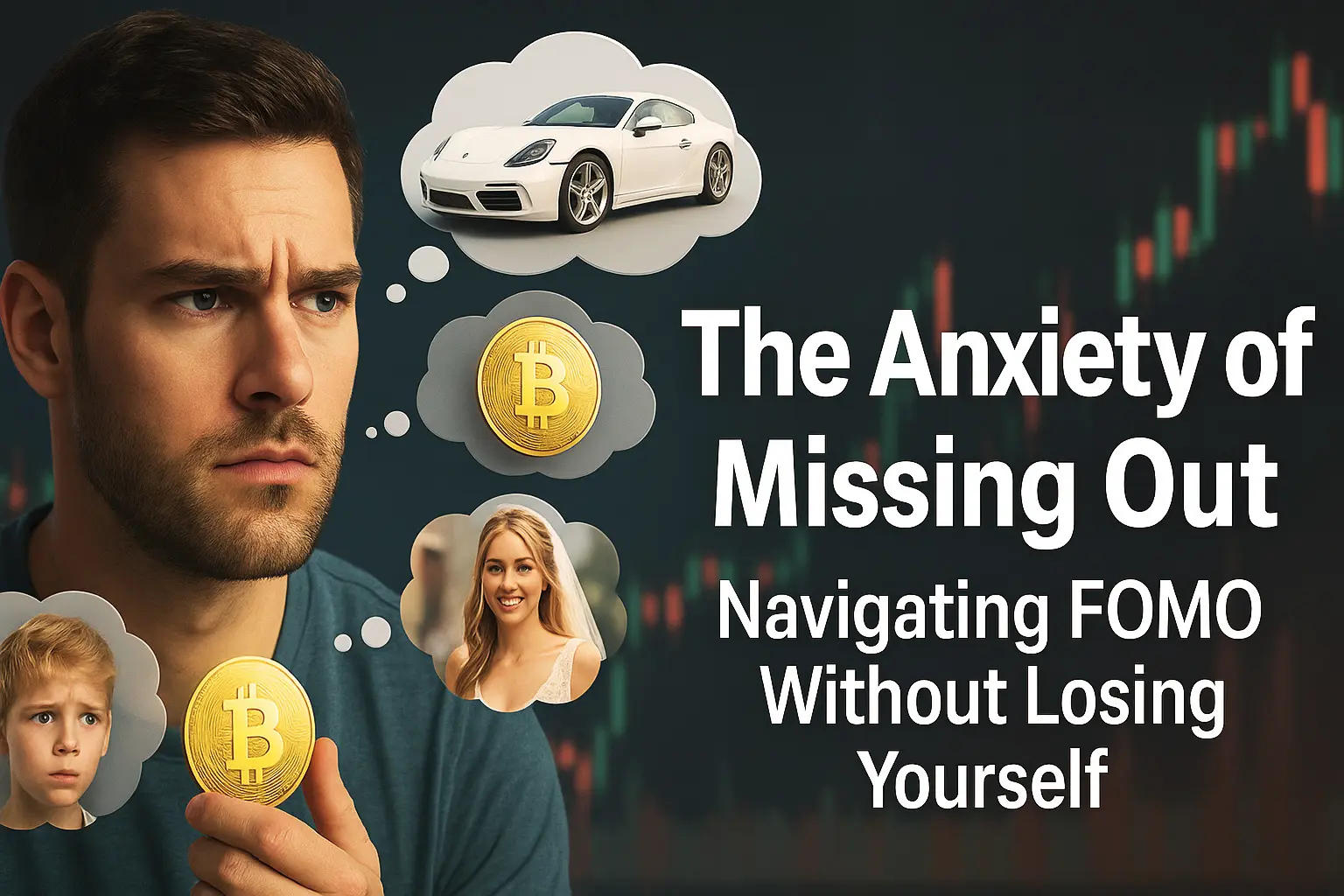
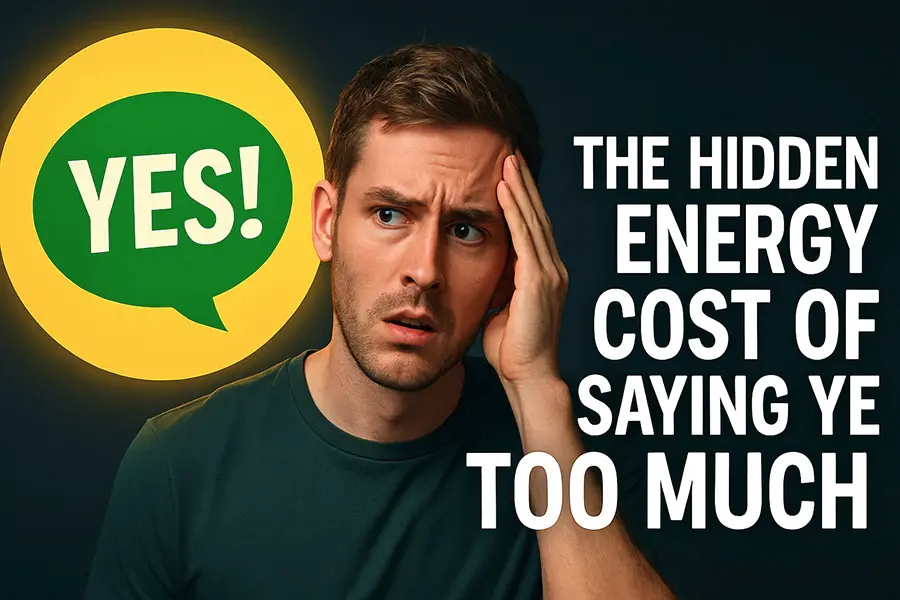
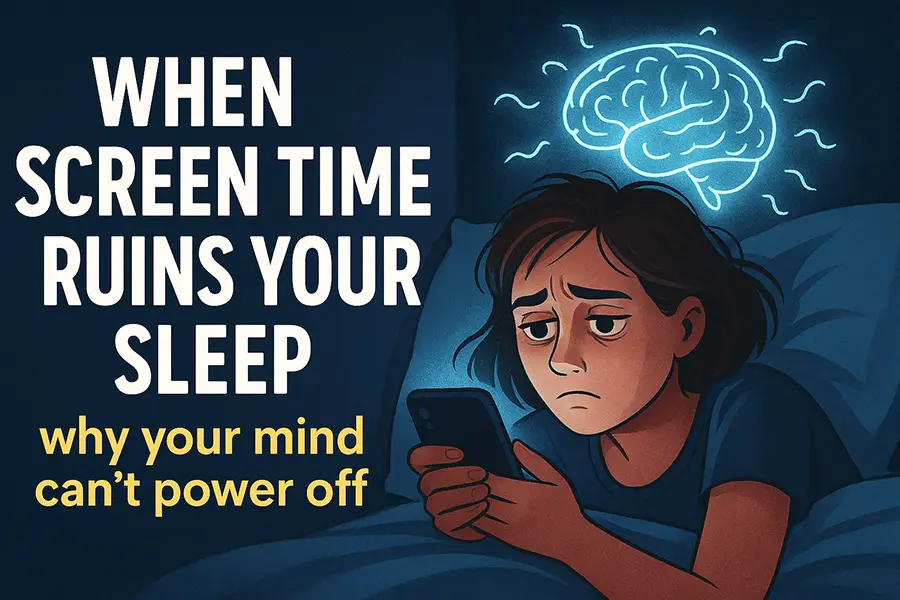

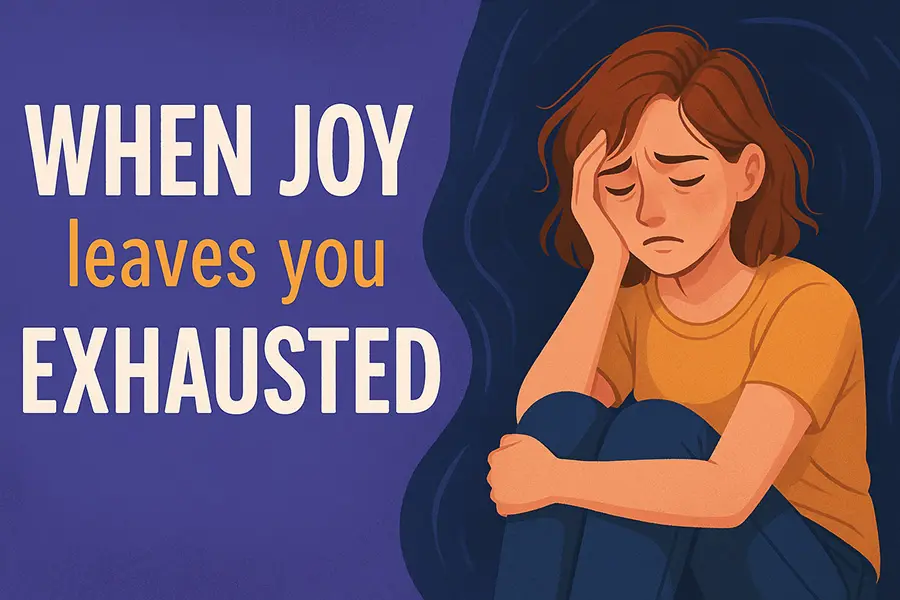
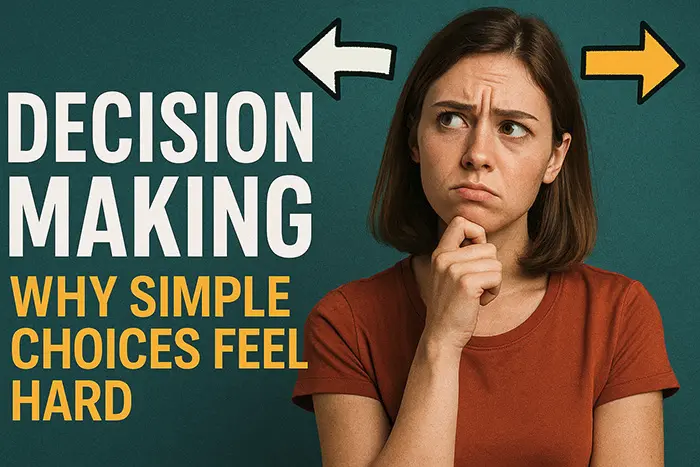
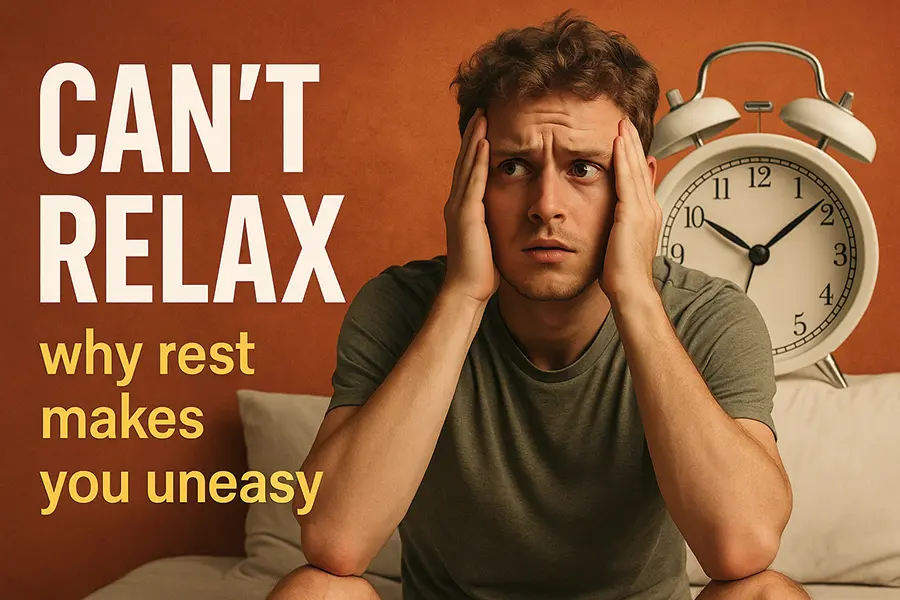
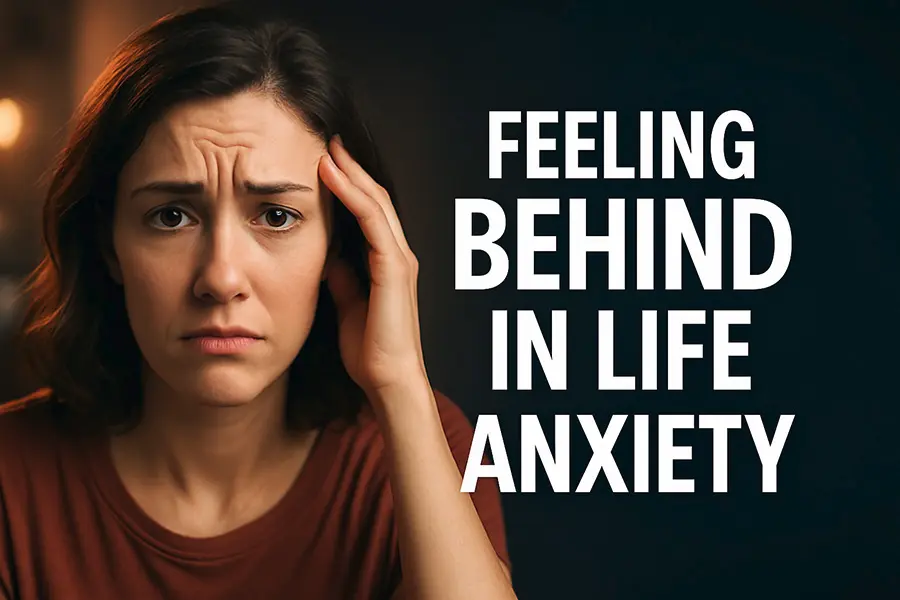
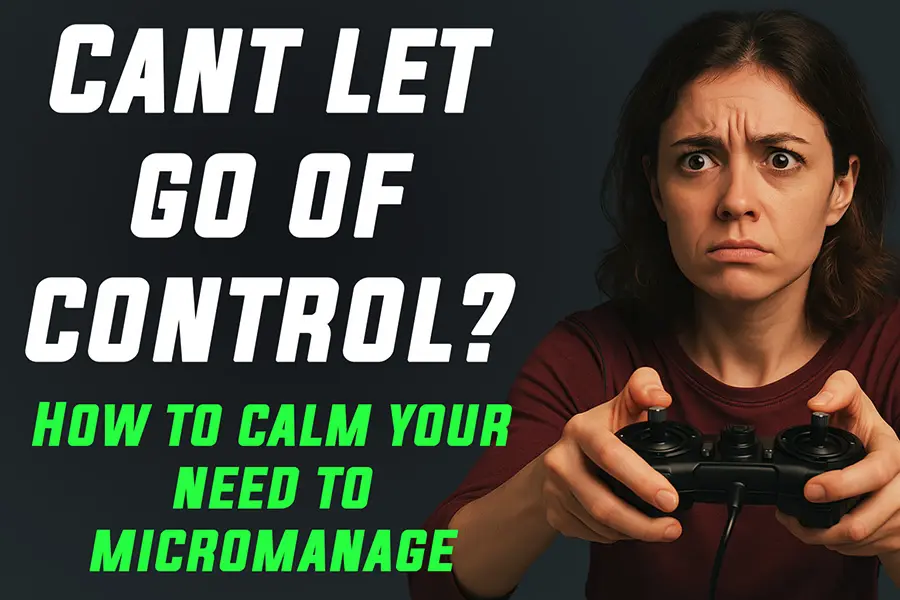
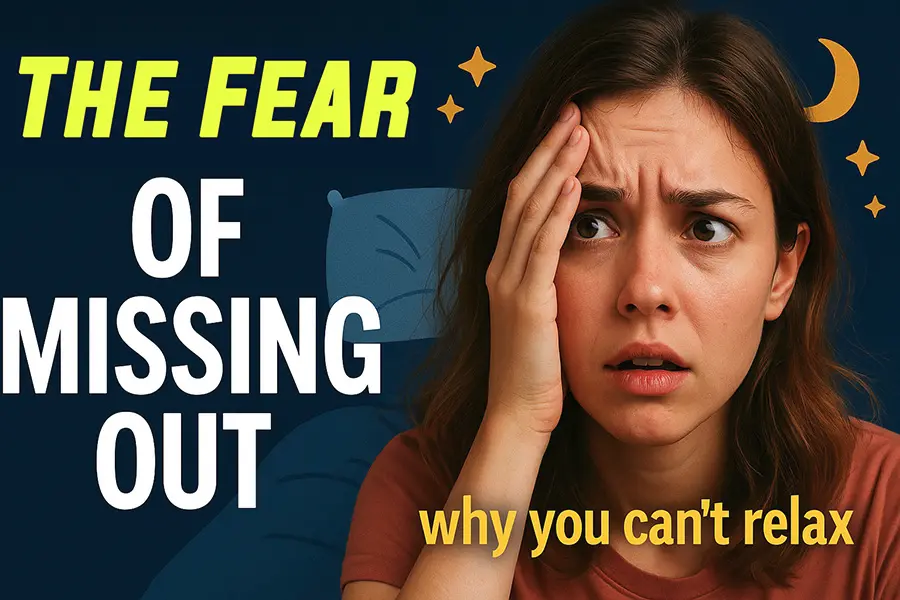
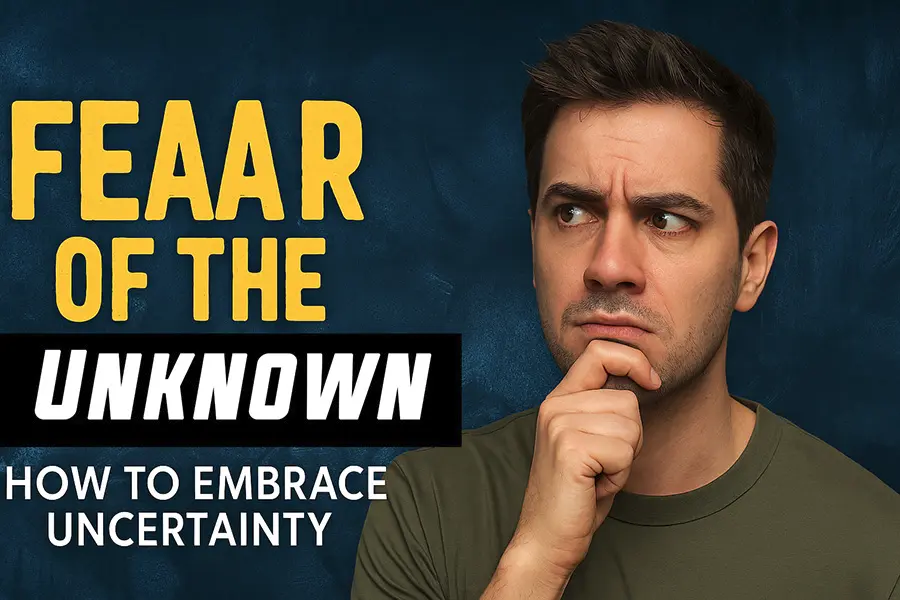
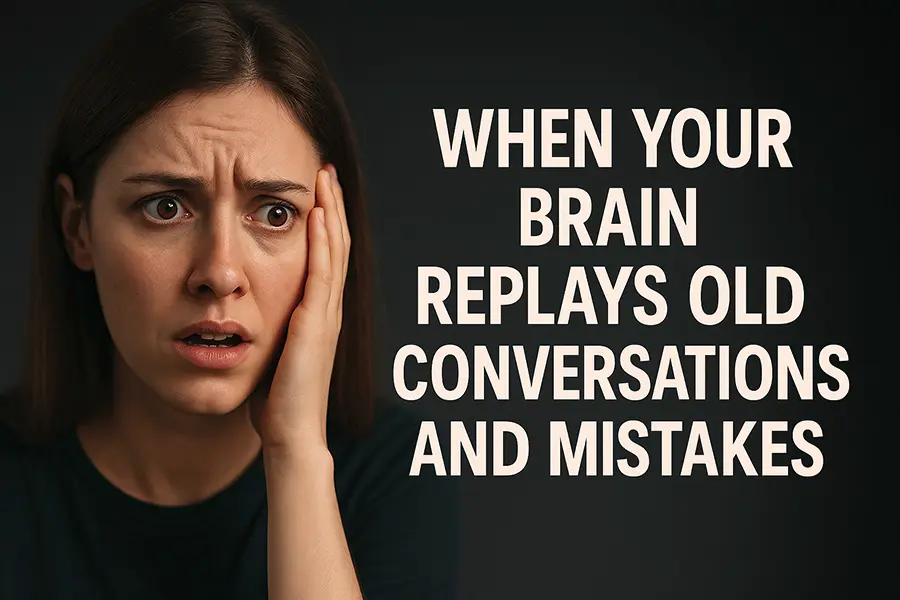
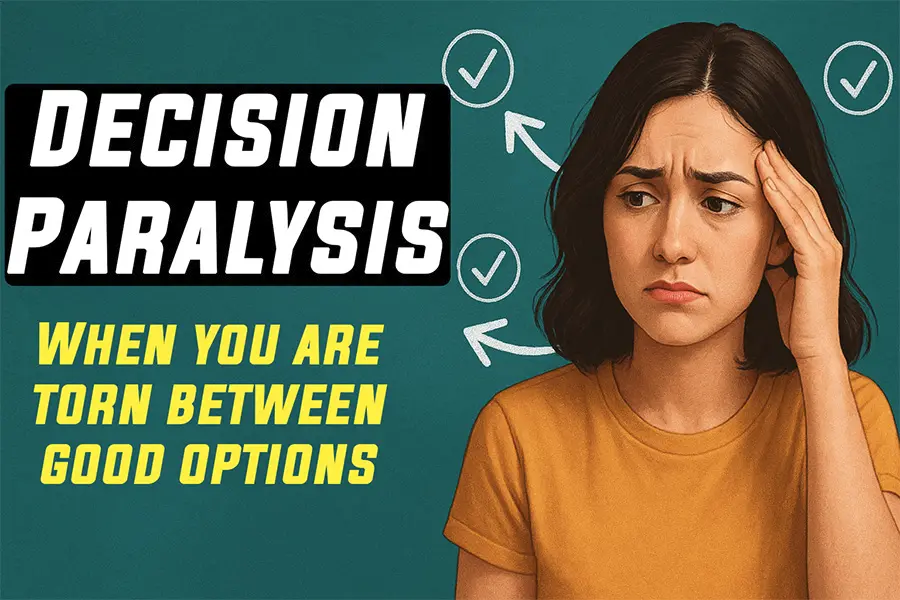










Leave a Reply